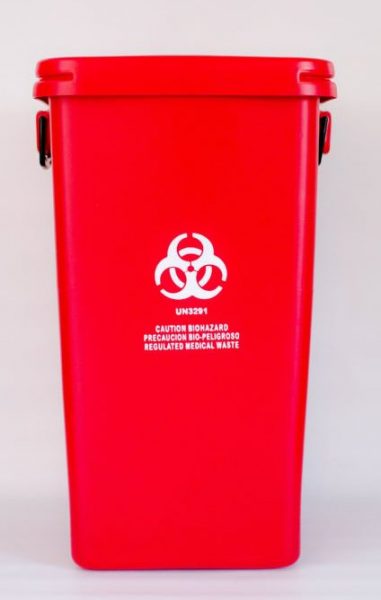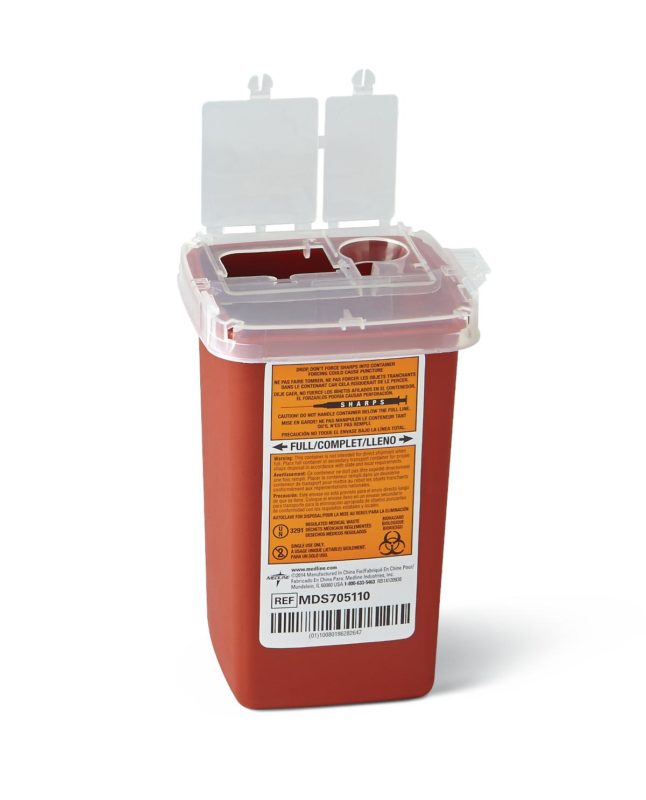Protecting Wellness: Revealing the Essence of Professional Medical Waste Removal
Protecting Wellness: Revealing the Essence of Professional Medical Waste Removal
Blog Article
Remain Ahead of Rules: Professional Advice on Medical Waste Disposal
In a globe where the medical care market is continuously advancing, it is essential for medical centers to stay in advance of guidelines when it pertains to the appropriate disposal of medical waste. With strict guidelines and regular governing changes, it can be challenging to browse the complexities of this process. With experienced advice, centers can ensure compliance and minimize dangers connected with improper waste disposal. From comprehending the different classifications of clinical waste to implementing the ideal collection and partition techniques, this conversation will certainly supply workable ideas and useful insights to help centers remain ahead of regulations in the ever-changing landscape of clinical garbage disposal.
Recognizing Medical Waste Categories
Recognizing medical waste groups is vital for proper disposal and administration in healthcare centers. Clinical waste refers to any kind of waste generated by health care activities that might pose a danger to public health or the setting. It is vital to categorize medical waste properly to ensure its risk-free handling, disposal, treatment, and transport.
There are numerous groups of medical waste that healthcare facilities require to be acquainted with. The most typical groups consist of infectious waste, pathological waste, sharps waste, pharmaceutical waste, and chemical waste. Each classification has certain standards and regulations for its appropriate administration and disposal.
Transmittable waste consists of materials contaminated with blood or other bodily liquids, such as handwear covers, dress, and research laboratory cultures. Pathological waste refers to human tissues, organs, or body components that call for special handling and disposal. Sharps waste includes made use of needles, syringes, and various other sharp objects that can trigger injury and transfer infections. Drug waste consists of run out, unused, or contaminated medications that require mindful handling and disposal. Finally, chemical waste consists of solvents, anti-bacterials, and other chemical materials made use of in healthcare centers.
Staying Up-To-Date With Regulatory Modifications
Staying present with governing modifications is essential for healthcare facilities to guarantee compliance and proper management of medical garbage disposal. medical waste removal near me. With laws frequently advancing, it is necessary for health care facilities to remain current to prevent charges, fines, and possible damage to the environment and public health
To stay in advance of regulative changes, medical care facilities should develop a system for tracking and monitoring updates. This can be done by registering for regulative e-newsletters, going to workshops and meetings, and actively getting involved in market organizations. Furthermore, facilities need to designate a personnel or team in charge of remaining informed and sharing details to pertinent stakeholders.
Routine communication with governing firms is likewise essential. Healthcare centers ought to develop connections with local, state, and government companies to ensure they know any changes in guidelines that may influence their waste administration techniques. This can be done through normal conferences, participation in public comment periods, and positive interaction with regulative companies.
Furthermore, medical care centers need to think about partnering with waste management business that specialize in clinical waste disposal (medical waste disposal services with WasteX). These firms are frequently skilled in the most recent regulations and can offer advice and assistance to ensure compliance
Executing Correct Collection and Partition Approaches
To effectively manage medical waste disposal, health care facilities need to develop correct collection and segregation methods in accordance with regulatory guidelines. Executing these methods guarantees the risk-free handling and disposal of potentially dangerous materials, protects the environment, and minimizes the risk of infections and injuries to healthcare workers and the public.
Correct collection and partition techniques include using designated containers and labeling systems. Healthcare centers need to give plainly identified containers for different sorts of medical waste, such as sharps, transmittable waste, pharmaceutical waste, and non-hazardous waste. These containers need to be color-coded and plainly marked to avoid complication and advertise very easy recognition.
Furthermore, healthcare centers need to train their staff on the appropriate procedures for gathering and segregating medical waste. This includes educating them on the different kinds of waste, the suitable containers to use, and the importance of adhering to laws and guidelines. Regular training sessions and refresher course courses need to be carried out to check it out guarantee that personnel continue to be updated on ideal practices.
Furthermore, medical care facilities must establish a system for normal collection and disposal of medical waste. This might involve partnering with accredited waste management firms that specialize in clinical waste disposal. These business will certainly guarantee that the collected waste is moved and taken care of in compliance with governing demands.
Picking the Right Disposal Techniques

Incineration is one of the most typical and efficient methods for disposing of certain kinds of clinical waste, such as pathological waste and sharps. It involves the controlled combustion of waste at high temperatures, decreasing it to ash. Nevertheless, incineration can launch hazardous toxins right into the air and add to air contamination.

Other disposal approaches consist of chemical therapy, microwave treatment, and landfilling. Chemical therapy involves using chemicals to sanitize and neutralize the waste. Microwave therapy utilizes microwave power to heat and decontaminate the waste. Landfilling includes hiding the waste in a designated land fill medical waste disposal services with WasteX area (medical waste disposal services with WasteX). Nevertheless, landfilling needs to be the last resort due to the prospective threat of contamination to dirt and groundwater.
Guaranteeing Compliance With Paperwork and Training
After very carefully taking into consideration the ideal disposal methods for clinical waste, medical care centers should make sure compliance with guidelines and learn the facts here now decrease ecological influence by carrying out effective paperwork and training procedures. This action is critical in keeping a secure and lasting environment for both healthcare employees and the public.

Medical care workers that deal with medical waste ought to get proper training on waste partition, taking care of, and disposal treatments. By giving comprehensive training, healthcare centers can encourage their team to make enlightened choices and decrease the threat of improper waste disposal.
Conclusion
To conclude, remaining ahead of policies in medical waste disposal is essential for health care facilities. medical waste removal service. Comprehending the various groups of clinical waste, remaining updated with regulatory changes, implementing appropriate collection and segregation methods, selecting the suitable disposal methods, and guaranteeing compliance through documents and training are all crucial actions. By complying with these guidelines, medical care companies can efficiently handle and dispose of clinical waste in a liable and safe fashion
From comprehending the different groups of medical waste to implementing the ideal collection and segregation approaches, this discussion will certainly offer valuable understandings and actionable ideas to assist facilities remain ahead of guidelines in the ever-changing landscape of medical waste disposal. - medical waste disposal services with WasteX
The most usual categories consist of transmittable waste, pathological waste, sharps waste, pharmaceutical waste, and chemical waste. Healthcare centers need to provide clearly identified containers for various kinds of clinical waste, such as sharps, infectious waste, pharmaceutical waste, and non-hazardous waste. Health care facilities need to develop a detailed system to tape and track all elements of clinical waste disposal, including types of waste created, quantities, and disposal techniques made use of. Medical care employees that handle clinical waste should receive suitable training on waste segregation, taking care of, and disposal treatments.
Report this page